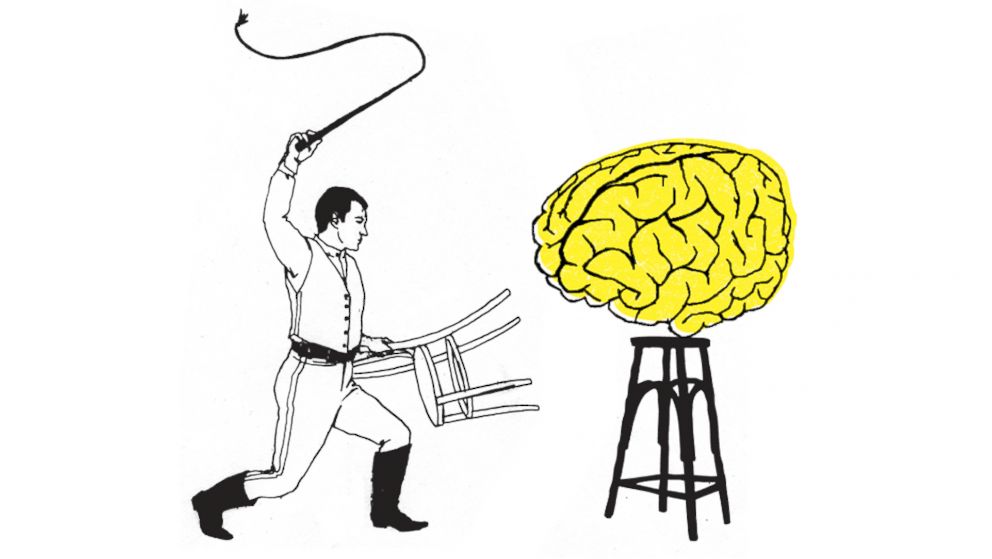3-Step Brain Hack for Happiness
A skeptic's case for meditation.

Feb. 13, 2014— -- Meditation always struck me as the distillation of everything that was most annoying about the granola lifestyle. I pictured myself seated in an unbearable cross-legged position in a room that smells like feet. My attitude was not far from that of Alec Baldwin's character on "30 Rock," who said, "Meditation is a waste of time, like learning French or kissing after sex."
Turns out, meditation is the victim of a terrible PR. It's really just exercise for your mind -- bicep curls for your brain. And there's an explosion of recent science to back it up. A blockbuster MRI study from Harvard found that people who took an eight-week meditation course had thicker gray matter in the areas of the brain associated with self-awareness and compassion, while the regions associated with stress actually shrank.
Best of all, it doesn't require robes, chanting or incense. You don't even have to sit funny.
Three simple steps:
Sit Comfortably
You don't have to twist yourself into a cross-legged position -- unless you want to, of course. You can just sit in a chair. (You can also stand up or lie down, although the latter can sometimes results in an unintentional nap.) Whatever your position, you should keep your spine straight, but don't strain.
Feel Your Breath
Pick a spot: nose, belly or chest. Really try to feel the in-breath and then the out-breath.
Return to the Breath
This one is the key: Every time you get lost in thought -- which you will, thousands of times -- gently return to the breath.
I cannot stress strongly enough that forgiving yourself and starting over is the whole game. As my friend and meditation teacher Sharon Salzberg has written, "Beginning again and again is the actual practice, not a problem to overcome so that one day we can come to the 'real' meditation."
How an On-Air Panic Attack Improved My Life
Notice that I said the above steps are "simple," but not easy. Repeatedly hauling your attention back from distraction takes grit, but it's worth it. Once you learn how to watch your breath without reactivity or judgment, you can start to do the same with anger, annoyance, impatience and all the other noxious impulses and urges that too often carry us away.
Start with five minutes a day. It's not a panacea, but it can help you in all sorts of ways -- from curbing your addiction to email to reducing mindless eating to being less frequently yanked around by your emotions. These benefits are why modern meditators include CEOs, elite athletes, marines, and me, a skeptical newsman. I've even written a book about it, called "10% Happier," coming out next month.
For more information on meditation, I like these websites: http://www.getsomeheadspace.com, http://www.sharonsalzberg.com/meditations, and http://www.samharris.org/blog/item/mindfulness-meditation.
Click here for more information on Dan's book.




